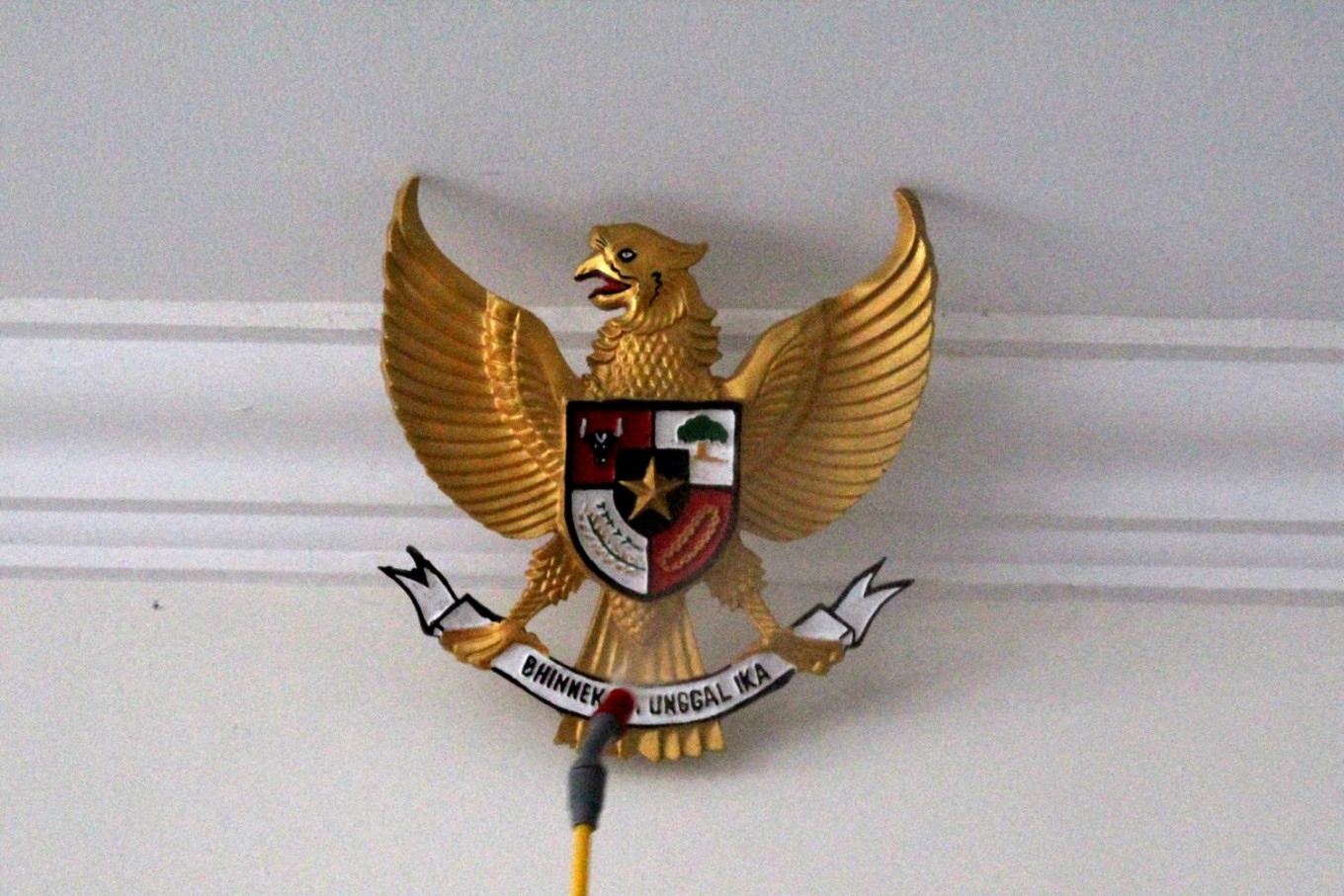Popular Reads
Top Results
Can't find what you're looking for?
View all search resultsPopular Reads
Top Results
Can't find what you're looking for?
View all search resultsRedefining Pancasila
Change text size
Gift Premium Articles
to Anyone
F
or one thing, the controversy surrounding the Pancasila Ideology Guidelines (HIP) bill shows yet again the tendency of our politicians to devise national policies without public consultation. But more than that, the bill is a grim reminder of the authoritarian past, when the state dictated what was right or wrong.
The government has called for the postponement of the deliberation of the bill, citing widespread opposition. Demands for the withdrawal of the bill from the legislative agenda have mounted, with moderate and hardline Muslim groups as well as retired military generals arguing the bill is a stepping stone for the reemergence of communist ideology in the country.
Not only the ruling Indonesian Democratic Party of Struggle (PDI-P), which has sponsored the bill, but all factions in the House of Representatives should be held responsible for fueling the polemics, which could undermine the country’s focus on its COVID-19 response.
The House unanimously approved the bill as an initiative draft law and listed it as a priority bill during a plenary session on May 12, having gone through at least seven meetings of the House Legislation Body (Baleg), two of them behind closed doors, where all factions were represented.
The Muslim-based Prosperous Justice Party (PKS) and National Mandate Party, however, objected to the original draft as it failed to refer to a 1966 Provisional People’s Consultative Assembly (MPRS) decree that bans communism as a legal foundation.
Read also: Communist phobia sinks Pancasila bill at House
During its deliberation, Baleg invited a number of experts, including former Constitutional Court chief Jimly Asshidiqqie, to share their views regarding the draft. But clearly a wider audience was not involved in the formulation of the bill. Beyond the fact that all the Baleg meetings were held during the pandemic, the entire process leading up to the House asking the President to permit the starts of deliberations has lacked transparency.
The bill aims to regulate the values of the Pancasila ideology and the functions of the Agency for Pancasila Ideology Education (BPIP). The PDI-P’s chairwoman and former president Megawati Soekarnoputri serves as the steering committee head.
BPIP was founded based on a presidential decree, which is why some believe the PDI-P is asking for a law as a stronger legal umbrella that will keep the agency intact and continue its roles when President Joko “Jokowi” Widodo, who is a PDI-P cadre, is no longer in power post-2024.
In opposing the bill, Muslim organizations, such as Nahdlatul Ulama, Muhammadiyah and the Indonesian Ulema Council, and retired military generals have said the bill could offer new interpretations of Pancasila. They fear the bill will open Pandora’s box, allowing communist and Islamic state aspirations alike to reemerge.
Such phobia is reminiscent of the New Order’s demonization of the “extreme left” and “extreme right”, but what makes the bill frightening is that it grants the state a mandate to singlehandedly define how Pancasila should be manifested in social, political and economic development.
There was a time when citizens’ loyalty to the state was measured in their capability to memorize the 45 points of Pancasila implementation. We cannot let this happen again.










